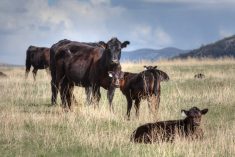Aperennial problem with a compulsory membership checkoff caused Keystone Agricultural Producers to finish 2009 with its fewest members in years.
Financial statements released at KAP’s annual meeting in Winnipeg last week show the organization ended last year with 4,402 paid members, down from 4,824 in 2008.
It’s not the lowest figure in KAP’s 26-year history but it’s not far off, said Ian Wishart, who was acclaimed to his third consecutive one-year term as KAP president at the meeting.
The main reason for low membership is that some elevator companies refuse to deduct KAP membership fees from grain deliveries at point of sale, as they are legally required to do, Wishart said.
Read Also

Mazergroup’s Bob Mazer dies
Mazergroup’s Bob Mazer, who helped grow his family’s company into a string of farm equipment dealerships and the main dealer for New Holland machinery in Saskatchewan and Manitoba, died July 6 from cancer.
Lack of co-operation by grain companies has been a perpetual problem with KAP’s membership checkoff since it came into effect in 1989.
The problem is actually getting worse despite KAP’s struggles over the years to make the checkoff work, Wishart said in an interview.
“In a lot of places, they don’t even ask the farmer any more.”
– IAN WISHART
“In a lot of places, they don’t even ask the farmer any more.”
Elevator agents are supposed to automatically deduct 0.75 per cent of a delivery’s value and forward it to KAP. Once deductions reach an individual’s annual membership of $150 (plus GST), further deductions either cease or are refunded.
But grain companies have always been loath to comply because of the paperwork and farmers’ complaints about deductions.
Wishart said the biggest offenders are foreign-owned multinational companies whom he refused to name. Canadian companies are more willing to comply, he said.
Membership in KAP is supposed to be mandatory, although farmers can request refunds after fees are collected. Wishart said the organization would have at least twice as many members if the checkoff worked the way it should.
KAP has regularly asked the province to pressure grain companies to comply with the checkoff legislated under the Agricultural Producers Organization Funding Act. Wishart said a certification agency established under the act sent letters to grain companies in December citing the law and telling them to follow it.
KAP is also looking at other ways to collect membership fees. One is for farmers to have membership cards to qualify for certain government programs and services. Other provinces, including Ontario, Quebec and the Atlantic provinces, already have such a system, said Wishart.
The Manitoba government appears willing to implement the measure but there’s no indication when that might happen, he said.
Poor crops in the Interlake region because of flooding were another reason for the membership decline. Wishart said many producers didn’t have enough grain to deliver to come up to the $150 level.
Getting memberships from non-grain sectors is easier because many have central agencies (e. g., marketing boards) to do the collecting, he said.
Although individual KAP memberships were down in 2009, the organization actually collected $57,300 in revenue more because of a fee increase to $150 from $125. KAP ended the year with an $8,268 surplus, according to financial statements.
But that was only a 10th of the $86,837 surplus recorded in 2008. At this rate, KAP risks ending 2010 in the red if memberships don’t improve, Wishart said.
“We are going to have to watch our budget very carefully and hope that that membership will be up.” [email protected]


















